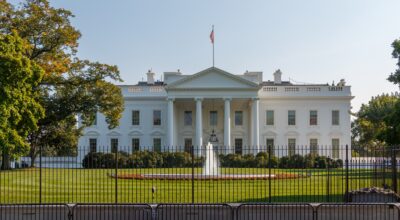
Coalition Letter to Capitol Hill GOP: Inaction on Big Tech is Unacceptable

Dear Leader McConnell, Leader McCarthy, and Republican Members of Congress:
This is a perilous moment for our democracy. For generations, conservatives have warned of the dangers to liberty posed by government overreach. Yet today, the greatest threat to free speech and democratic deliberation comes from the private sector: the consolidated corporate power in control of our most important online speech platforms.
In the early years of social media, conservatives regarded these tools as means of democratizing public deliberation and circumventing the left-wing bias of traditional corporate media. Indeed, to this day, many conservatives have achieved remarkable success thanks in part to the megaphone granted them by these platforms. But increasingly, the platforms have imposed demands on their most successful users: that they color within the lines of “acceptable” debate as set by the left-wing content moderation teams hired by their executives, lest they lose access to the modern public square.
The arbitrariness of these content moderation decisions has had a chilling effect already, and the platforms have become more brazen. No longer are they satisfied merely silencing the voices of pro-life organizations and those who refuse to accept new orthodoxies on gender identity. Last month, they embraced a power no private entity should possess: the authority to censor a sitting president of the United States. If even a President is helpless in the face of such consolidated corporate power, private citizens without fame or fortune have little hope that their rights, or access to the modern public square, when abused, can be properly vindicated.
Conservatives have long been skeptical of government intervention in the free market, and such skepticism remains critical in the fights to come for our movement. But we cannot be blind to the reality that stares us in the face: concentrated corporate power of this nature is as much a threat to the spirit of our Constitution as abuses of its letter by the government itself. Furthermore, this corporate power did not form ex nihilo from the free market. These platforms are the creations of government subsidies in the form of liability shields provided under current law.
This Congress, you will no doubt hear many good faith appeals from conservative skeptics of antitrust enforcement or reforms to online platform liability who will urge caution on your part in confronting the threat posed by the tech giants.
One such letter recently urged you to avoid legislative action in this space, arguing that “the courts, not Congress, should determine whether America’s most successful companies have violated the antitrust laws.”
We respectfully suggest that this perspective is fundamentally unconservative, and that it betrays a misunderstanding of the role of Congress and the separation of powers. Ours is not a republic governed by judges; it is governed by laws, and by the institutions that make and enforce them.
Congress’ role is to make such laws on behalf of the American people and not delegate their authority to other branches. This responsibility includes both the oversight of whether courts are interpreting current law properly and the consideration of reforms to account for new developments in the market and their impact on the health of our communities.
The threat to liberty we now face is a consequence of Congressional inaction in the face of a historic transformation in the manner by which our nation engages in public deliberation. That change has empowered a small handful of unelected corporate bureaucrats in Silicon Valley unanswerable to the people whom they now oppress.
To treat the current laws on online platform immunity or antitrust enforcement as quasi- Constitutional provisions inerrant in their present form despite their obvious failures is wrongheaded. To appeal to judges to solve this on their own is an abdication of duty.
Accordingly, we welcome the proliferation of legislative activity in the area of big tech reform. America’s foundational values of diverse speech, market access, and the free flow of information are imperiled by concentrated corporate power wielded at unprecedented scale — and in many cases, aided and abetted by federal policies. Inaction in this forum is no longer an acceptable response. We look forward to reviewing the various bills and proposals that emerge as Congress refines its approach to this increasing and existential threat to our nation.
Sincerely,
Russell T. Vought
President
Center for Renewing America
Mike Davis
President
Internet Accountability Project
Rachel Bovard
Senior Director of Policy
Conservative Partnership Institute
Morton C. Blackwell
President
Leadership Institute
Ryan P. Williams
President
Claremont Institute
Brigitte Gabriel
Founder, Chairman
ACT for America
Justin Danhof
General Counsel
National Center for Public Policy Research
Floyd Brown
Publisher
Western Center for Journalism
Amy Kremer
Chairman
Women for America First
Christie-Lee McNally
President
Raven Strategies
Steve Jalsevac
Founder
LifeSiteNews
George K. Rasley, Jr.
Managing Editor
ConservativeHQ.com
Jim Demint
Chairman, Conservative Partnership Institute
Member, U.S. Senate
L. Brent Bozell III
Founder and President
Media Research Center
Terry Schilling
Executive Director
American Principles Project
Mary Vought
Executive Director
Senate Conservatives Fund
Arthur Milikh
Executive Director
Center for the American Way of Life
Penny Young Nance
CEO and President
Concerned Women for America
Kelly Shackelford
President, CEO
First Liberty Institute
Paul Gessing
President
Rio Grande Foundation
Elaine Donnelly
President
Center for American Readiness
Robert Romano
VP of Public Policy
Americans for Limited Government
John Henry Westen
Founder
LifeSiteNews
Lori Roman
President
American Constitutional Rights Union Action



